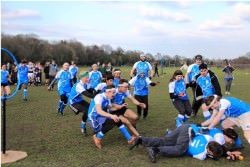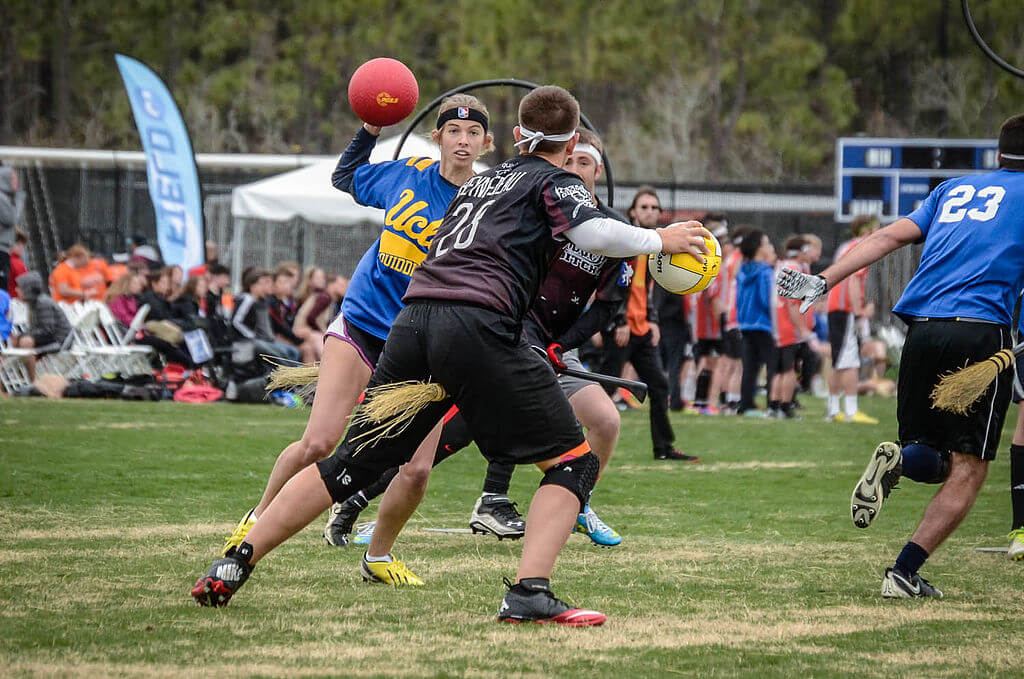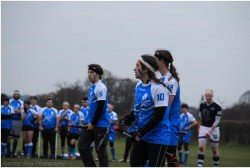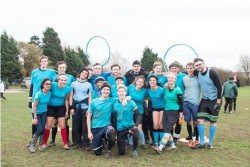The meteoric rise of Warwick Quidditch Club
Since its creation in 2005, Quidditch has become one of the fastest growing sports in the world. It has come a long way since J. K. Rowling first envisioned the sport in her Harry Potter books; teams are now developing nationally and internationally, springing up in countries such as the US, France, Italy, Australia and of course, the UK. Nine rulebooks and eleven years later, the University of Warwick has become home to the second best team in the UK.
Outsiders must understand that the sport is more than a group of Harry Potter ‘nerds’ running around in circles throwing balls at each other. In fact, it is the total opposite. Quidditch demands constant commitment to the sport itself and the team and the physicality of the sport pushes players to their limits, testing their fitness, agility and stamina. What is most important, however, is that Quidditch demands flawless teamwork; no sport needs it more.
Warwick Quidditch Club only got off the ground two years ago. With the help of Oxford University Quidditch Club, the club held its first training session in 2014. A graduate of OUQC, Priya Shah, who was completing her Masters at Warwick, stepped up into the role of coach. The team really wouldn’t be where they are today without Priya’s efforts last season.
Last season, WQC finished 15th out of 23 teams at the British Quidditch Cup 2015. Before I go onto explain the club’s rise to 2nd in the country in the space of just twelve months, I will briefly outline the rules of ‘muggle’ Quidditch for those readers who remain confused. No, we don’t fly, but we do have to remain mounted upon a broom for the duration of the game. This is our handicap. Each sport requires something that acts as a challenge to make the sport more difficult; in Quidditch, players must remain on their brooms and are penalised if they dismount by having to run back to hoops.
To some extent, the sport is a mixture of Rugby and Dodgeball.
There are four positions within the game; one keeper, two beaters, three chasers and one seeker – each distinguishable by the colour of their headbands (green, black, white and yellow respectively). To some extent the sport is a mixture of Rugby and Dodgeball. The chasers must score with the quaffle, with each goal worth ten points. This element of the game is similar to Rugby, as it is full contact and tackling is encouraged. Meanwhile, beaters work to ‘beat’ out the chasers and each other much like dodge ball; they are the team’s main defence mechanism. Once beat, the player is momentarily out of play until they run back to their hoops and tap back in.

Warwick celebrate Jonathan Purvis’ snitch catch in the semi finals of the British Quidditch Cup. Image: Ajantha Abey
At 18 minutes past, the snitch enters the pitch. This is a neutral player dressed in yellow with a tennis ball in a sock attached to the back of his shorts; something that mirrors tag rugby. Once the snitch is caught, the game is over and 30 points are given to the team that catches the snitch.
Warwick’s journey this season has been incredible. The club entered our regional tournament – the Southern Quidditch Cup – back in November 2015. As a team we were hopeful, yet our performance not only stunned others, but ourselves! Under the captaincy of Seb Waters, WQC finished second; narrowly missing out against Oxford University Quidditch Club. The final was an interesting match, as you may recall that OUQC were the club that helped to establish Warwick back in 2014; the mentees took on their mentors. The performance at Southern was so outstanding that four members – Jacopo Sartori, James Burnett, Luke Trevett and Seb Waters – were called up to train with Team UK. This is the national Quidditch team that will compete at the World Cup in Frankfurt in July.
The club performed phenomenally at the 2016 British Quidditch Cup. The two-day tournament saw 32 teams battle it out to be crowned national champions. At the end of day one, Warwick had stormed their group and were ranked first in the tournament for finishing with maximum point difference. On day two the team progressed through the ‘round of sixteen’, the quarter-finals, and finally an exhausting semi final against the Nottingham Nightmares, another of the favourites to win. The final became a re-match of the Southern Cup final; Oxford were the opponents once again. After an exhausting 50 minute match, Warwick fell just short, losing by 150* points to 50.
The club is now seen as one of the best Quidditch teams in the UK, and potentially in Europe.
Though Warwick were not crowned national champions, the club is now seen as one of the best Quidditch teams in the UK, and potentially in Europe. Our players performed at such a high standard that the club has been able to send yet another player, Ben Malpass, to Team UK. This month, the team travel to Italy to compete in the European Quidditch Cup, where they will play against teams from countries such as France, Spain, Italy and Turkey. Here, Warwick Quidditch Club will strive to show that they can mix it with the very best.



Comments